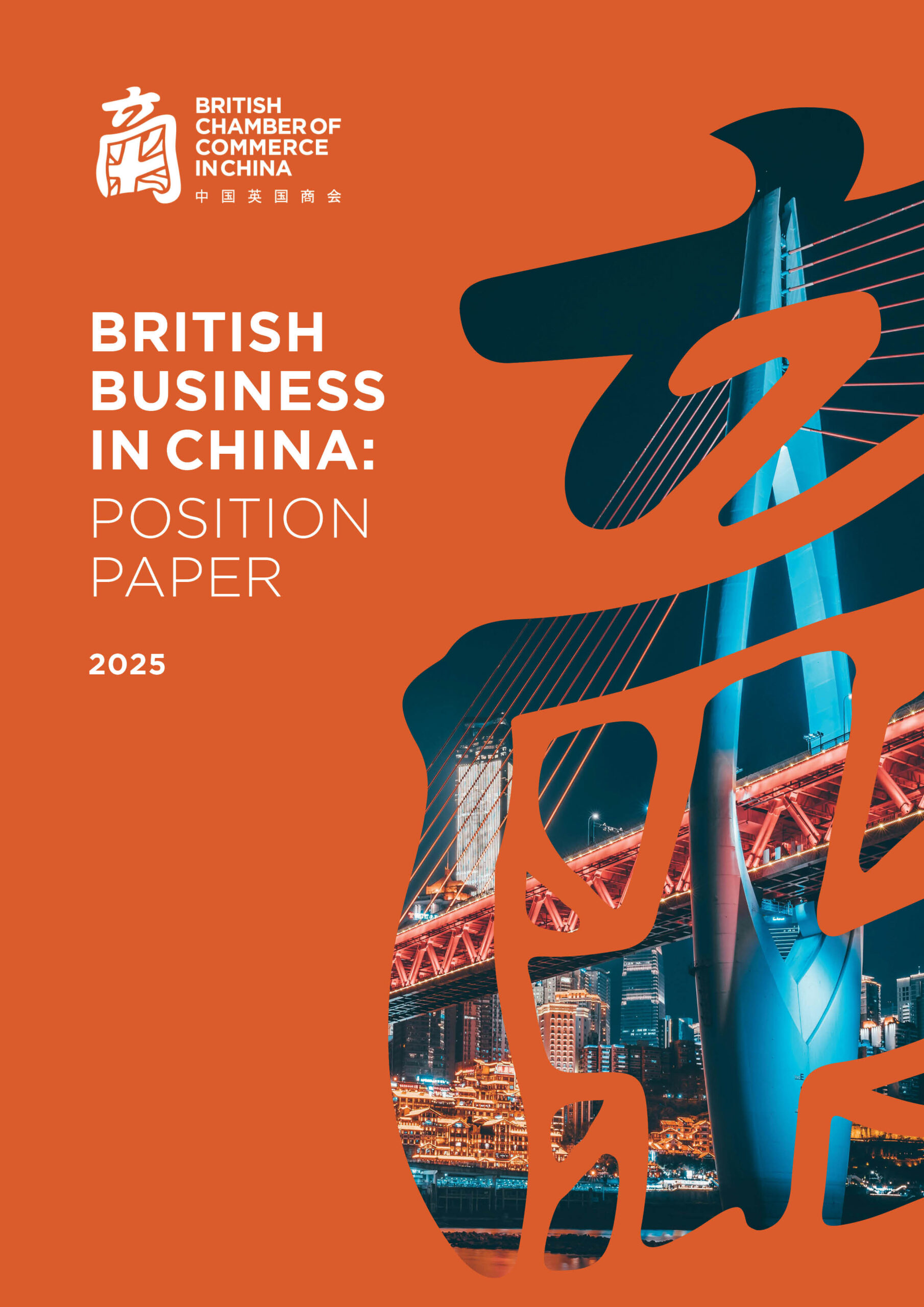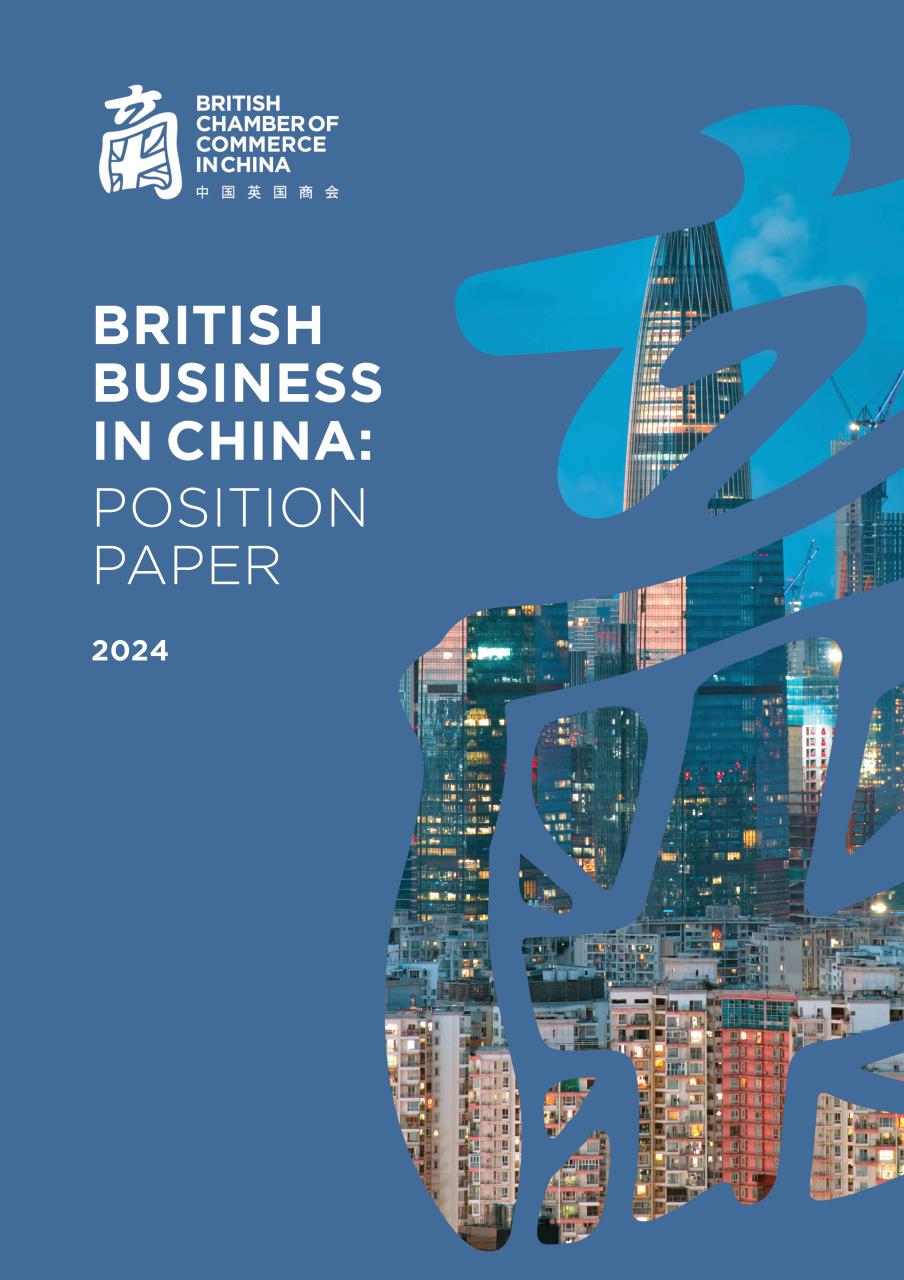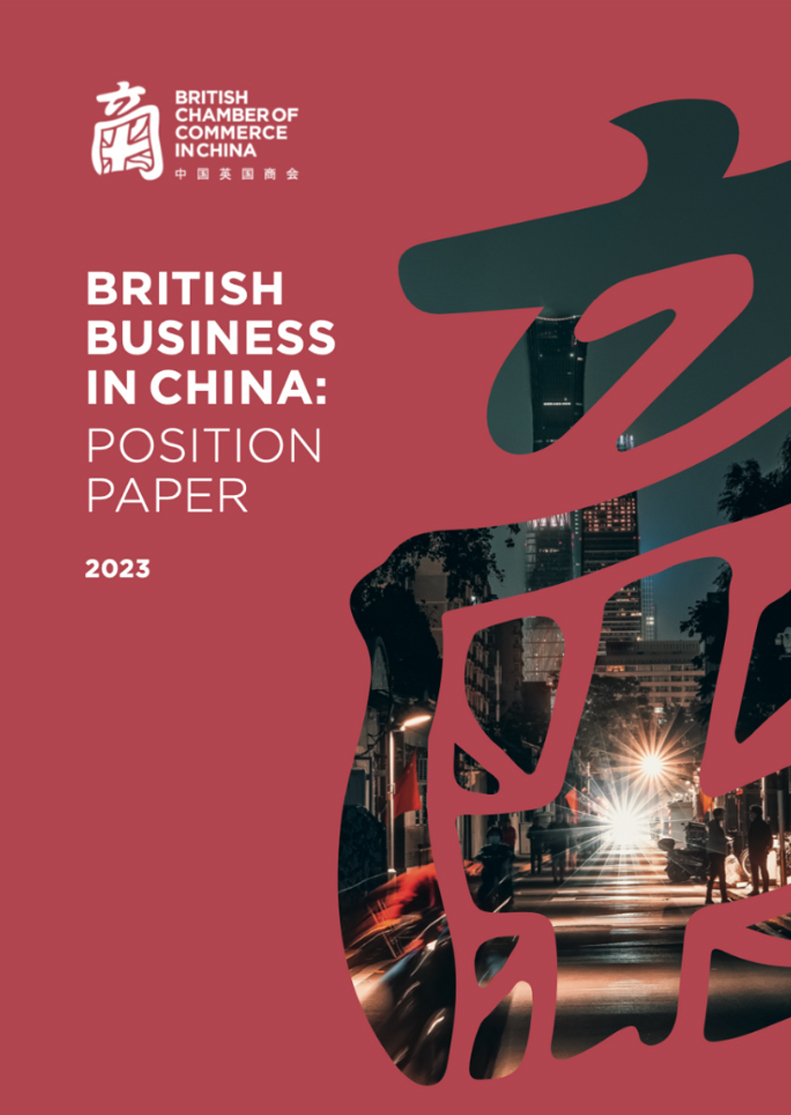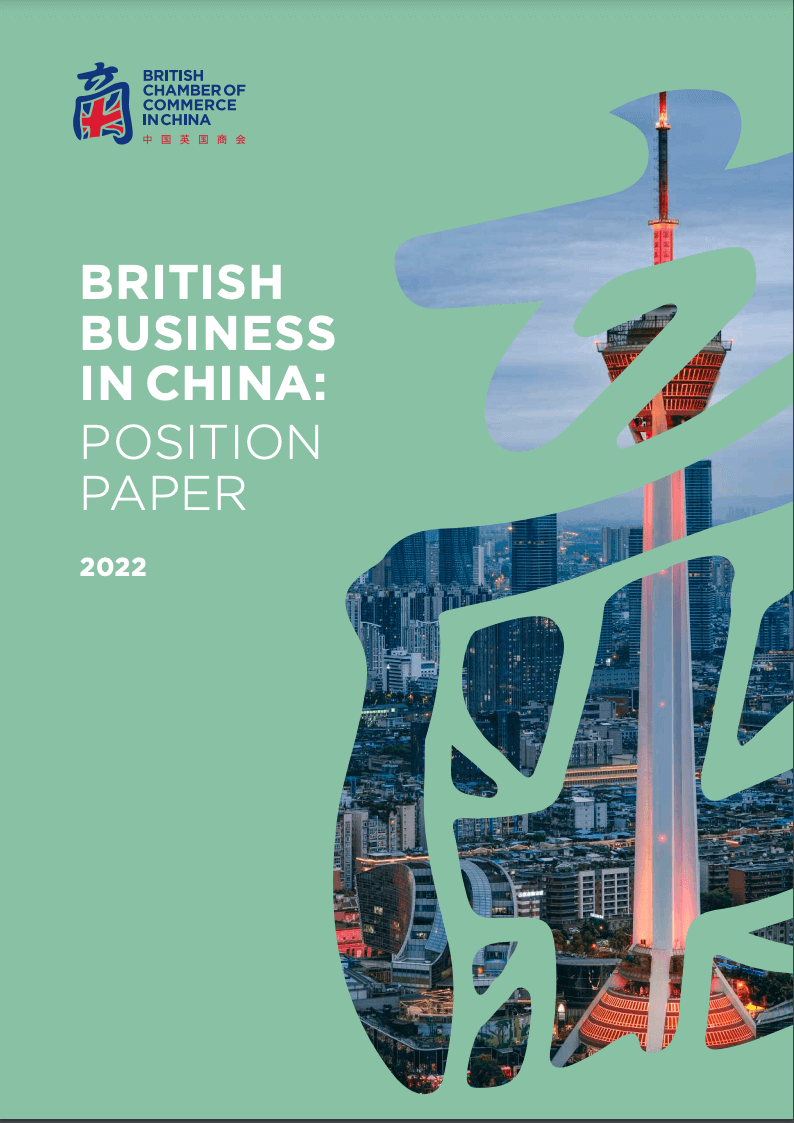
Overview
The British Business in China: Position Paper is a report created by the British Chamber of Commerce in China to provide advocacy and representation on behalf of British businesses operating in China. British businesses across a range of sectors in Beijing, Guangdong and Southwest China come together to raise the regulatory barriers that they face, areas of opportunity for bilateral cooperation and recommendations for market access reform. The Position Paper is directly presented to the UK and China governments in order to directly inform trade policy and negotiations.
This year’s Position Paper features analysis across seven sectors, from education and energy, to creative industries and the legal sector. Its findings are based upon dozens of interviews and roundtables with member companies, relevant stakeholders, industry experts and policy analysts, and is one of the two major annual publications from the Chamber.

■ Ensure effective follow-up on the Policy Outcomes of the 2025 Economic and Financial Dialogue, including the 29 raised in the Chamber’s Position Paper;
■ Accelerate resolution of long-standing market access issues – particularly low-risk, administrative barriers such as qualification recognition, visa restrictions, and licensing procedures – to build trust and unlock immediate business confidence;
■ Accelerate market access through clear, predictable, transparent policymaking and more regular engagement with businesses;
■ Introduce formal mechanisms for local- level accountability and implementation monitoring, ensuring national regulatory reforms are applied consistently across provinces and sectors;
■ Expand joint UK-China industry dialogues to address market access issues, including holding a Joint Economic and Trade Commission (JETCO), an education dialogue, and other dialogues discussed in the EFD.
As this paper goes to print, global trade tensions hang ominously over British businesses operating in China and around the globe. In response to sudden and unpredictable policy changes by the US administration, the Chinese government is positioning itself as a global trade champion and a dependable destination for investment. Yet despite some tangible moves towards this stated goal, businesses on the ground continue to report receiving mixed signals.
As such, the story that follows in this paper is a familiar one. While British companies operating in China acknowledge improvements in the regulatory environment and support official pronouncements and legislative developments made in the past year, there remains a gap between policy and on-the-ground implementation.
This year’s Position Paper puts forward 50 positions: recommendations from British businesses to the Chinese government about ongoing market access issues.
Of last year’s 50 positions, the British Chamber assesses that ten (20%) have been resolved or have seen tangible progress, including issues such as packaging requirements for whisky and the import of classic cars. 29 (58%) have been captured in the outcomes of this year’s UK-China Economic and Financial Dialogue, covering key areas such as expediting medicine approvals and enabling partnerships for British law firms.
That leaves 21 of the 50 recommendations in this year’s paper carried forward from last year – including 10 long-standing issues first raised in our inaugural 2019 Position Paper that have yet to be resolved. While some of these returning issues have seen incremental improvements, others have yet to receive a meaningful response.– Issues such as changing chief representatives for legal firms and acceptance of qualifications in the education sector are all areas where our members believe relatively straightforward changes could have outsized impacts on creating a fairer, more predictable trading environment for foreign business.












